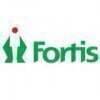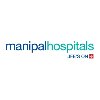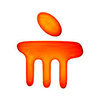
i
Cloudnine
Hospital
Filter interviews by
Cloudnine Hospital Staff Nurse Interview Questions and Answers
24 Interview questions
The demonstration pattern involves explaining a process step-by-step, often using visual aids or examples.
Start with an overview of the process to be demonstrated.
Use visual aids like charts or models to enhance understanding.
Break down the process into clear, manageable steps.
Provide real-life examples to illustrate each step.
Encourage questions to clarify any doubts during the demonstration.
Bradycardia is a medical condition characterized by a slower than normal heart rate, typically below 60 beats per minute.
Normal resting heart rate for adults is 60-100 beats per minute.
Bradycardia can be caused by factors like aging, heart disease, or certain medications.
Symptoms may include fatigue, dizziness, or fainting spells.
In athletes, bradycardia can be a sign of good cardiovascular fitness.
Severe bradycar...
A doula is a trained professional who provides physical and emotional support to individuals during pregnancy, childbirth, and postpartum.
Doulas offer continuous support during labor, helping to reduce anxiety and pain.
They provide education on childbirth options and newborn care.
Doulas can assist with creating a birth plan tailored to the family's needs.
They may also offer postpartum support, helping families adj...
Collecting samples involves following protocols to ensure accuracy and safety for diagnostic testing.
Identify the type of sample needed (e.g., blood, urine, swab).
Ensure proper patient identification and consent.
Use sterile equipment to avoid contamination.
Follow specific collection techniques (e.g., venipuncture for blood).
Label samples accurately with patient information and date.
Transport samples to the lab pro...
Sample collection upon admission includes various tests to assess patient health and guide treatment.
Blood samples for complete blood count (CBC) to check for anemia or infection.
Urine samples for urinalysis to detect kidney function and infections.
Cultures (blood, urine, or wound) to identify pathogens in case of infection.
Electrolyte panels to assess metabolic status and organ function.
Chest X-ray or other imagi...
IV fluid selection for NICU babies depends on their specific needs, such as hydration, electrolyte balance, and nutritional support.
Use D5W (5% dextrose in water) for hydration in stable NICU infants.
Consider NS (normal saline) for electrolyte balance in dehydrated infants.
For nutritional support, use TPN (total parenteral nutrition) in critically ill NICU babies.
Monitor blood glucose levels when administering dex...
Cannulation involves inserting a cannula into a vein for medication or fluid administration.
1. Gather necessary equipment: cannula, tourniquet, antiseptic wipes, gloves, and a syringe.
2. Explain the procedure to the patient to gain their consent and cooperation.
3. Apply a tourniquet above the chosen site to engorge the vein.
4. Clean the site with antiseptic wipes in a circular motion.
5. Hold the skin taut and inse...
NICU medicine focuses on the care of critically ill newborns, providing specialized treatment and support for their unique needs.
NICU stands for Neonatal Intensive Care Unit, where premature or ill newborns receive specialized care.
Common conditions treated include respiratory distress syndrome, jaundice, and infections.
NICU staff includes neonatologists, nurses, respiratory therapists, and lactation consultants.
A...
Proper hand washing is essential for infection control and involves specific steps to ensure hands are thoroughly cleaned.
Wet hands with clean, running water (warm or cold).
Apply soap and lather by rubbing hands together, including back of hands, between fingers, and under nails.
Scrub hands for at least 20 seconds; sing 'Happy Birthday' twice as a timer.
Rinse hands well under clean, running water.
Dry hands using a...
I check medication expiration by reviewing labels, maintaining inventory, and following protocols for safe medication management.
Review the expiration date printed on the medication label before administration.
Conduct regular inventory checks to identify medications nearing expiration.
Store medications in a way that allows easy visibility of expiration dates.
Use a medication management system that alerts staff to ...
Cloudnine Hospital Staff Nurse Interview Experiences
114 interviews found
I applied via Walk-in and was interviewed in Dec 2024. There was 1 interview round.
(7 Questions)
- Q1. Hand washing techniques. CPAP setting. Ventilator care for newborn.
- Q2. Purpose of photo therapy
- Q3. What is mean by Bradycardia
- Q4. Normal RBS level in New born
- Q5. Normal heart rate in New born
- Q6. What is respiratory distress syndrome. What is the care taking for those baby's.
- Q7. What is prematurity. What is the care for premature baby.
(2 Questions)
- Q1. What is eclamsia
- Q2. What is DNC full form
(2 Questions)
- Q1. Which is your previous company
- Q2. How many year of experience
(2 Questions)
- Q1. Jsns hsjsjsj sjsjsjsj
- Q2. Hshshs hshshsb hshshs
(2 Questions)
- Q1. Hdhdhdh jdjdjd jsjdjd
- Q2. Hdhdhdh hdjdjd
Interview Preparation Tips
I appeared for an interview in Dec 2024.
(2 Questions)
- Q1. Do you know iv cannula
- Q2. Do you know NST procedure
(2 Questions)
- Q1. Work experience
- Q2. Salary expectation
Interview Preparation Tips
I appeared for an interview in May 2025, where I was asked the following questions.
- Q1. Related to work
- Q2. Related to department
- Q3. Related to nurse
- Q4. Related to job
- Q5. Related to hospital
- Q6. Related to nursing procedure
- Q7. Related to nurse professional
- Q8. Related to nursing department
- Q9. Related to nurse knowledge
- Q10. Related to work experience
I appeared for an interview in May 2025, where I was asked the following questions.
- Q1. Who mach experience
- Q2. According to patient
- Q3. Ot may patient aata hai to kya karoge
- Q4. What will you do if an EMR case comes
- Q5. What report do you see first in a patient life
- Q6. Which case do you get done
Interview Preparation Tips
I appeared for an interview in Jun 2025, where I was asked the following questions.
- Q1. What is the experience
- Q2. What is the Expetions about the workplace
I appeared for an interview in May 2025, where I was asked the following questions.
- Q1. Recording to enstument
- Q2. Recording to dilivry
- Q3. Recording to hypertension
- Q4. Recording to aph
- Q5. Recording to patient comunication
Interview Preparation Tips
I appeared for an interview in May 2025, where I was asked the following questions.
- Q1. What is the procedure for performing a lower segment caesarean section (LSCS)?
- Q2. What instruments are used in laparoscopic hysterectomy?
- Q3. What is the surgical safety checklist?
I appeared for an interview in Apr 2025, where I was asked the following questions.
- Q1. Emergency drugs
- Q2. Vitals normal range
- Q3. How to check it the OT patient
- Q4. What are doing in patient colabs
- Q5. You doing canula and sizes
- Q6. You have doing foley cethiter
- Q7. You are how to patient recived
- Q8. How to doing madication
- Q9. Patient i give a right madication and right person
- Q10. Patient give a doctor prescribed medicine
- Q1. What are u looking for a change
- Q2. Tell about your self
- Q3. Tell me something you are learning right now
- Q4. What does your idea work look like
- Q5. Do u have any questions for us
- Q6. Wt can u do better for us
- Q7. Name 3 things that u like the most about your company
- Q8. Why u want this job
- Q9. Tell me about your self
- Q10. What are the goal for future
- Q11. How did u find out of this Job
- Q12. Do u have any questions
- Q13. Can u tell about your self
- Q14. What are some of ur hobbies
- Q15. Tell about ur education
- Q16. Wt about your self
- Q17. Did u have anything to tell with us
- Q18. Can u walk me through your resume expect to make
- Q19. What salary do u expect to make
- Q20. What is ur beggest wekeenss
- Q21. What is an example of a situation where you...?
Interview Preparation Tips
Top trending discussions






Cloudnine Hospital Interview FAQs
Some of the top questions asked at the Cloudnine Hospital Staff Nurse interview -
The duration of Cloudnine Hospital Staff Nurse interview process can vary, but typically it takes about less than 2 weeks to complete.
Tell us how to improve this page.
Cloudnine Hospital Interviews By Designations
- Cloudnine Hospital Staff Nurse Interview Questions
- Cloudnine Hospital Nursing Staff Interview Questions
- Cloudnine Hospital Customer Care Executive Interview Questions
- Cloudnine Hospital Anesthesia and Operation Theatre Technician Interview Questions
- Cloudnine Hospital Senior Executive Interview Questions
- Cloudnine Hospital Senior Staff Nurse Interview Questions
- Cloudnine Hospital Registered Nurse Interview Questions
- Cloudnine Hospital Lab Technician Interview Questions
- Show more
Interview Questions for Popular Designations
Overall Interview Experience Rating
based on 156 interview experiences
Difficulty level
Duration
Staff Nurse Interview Questions from Similar Companies
Cloudnine Hospital Staff Nurse Reviews and Ratings
based on 458 reviews
Rating in categories
|
Staff Nurse
167
salaries
| ₹2 L/yr - ₹5 L/yr |
|
Guest Relation Executive
93
salaries
| ₹1.8 L/yr - ₹4 L/yr |
|
Assistant Manager
84
salaries
| ₹5 L/yr - ₹9.2 L/yr |
|
Senior Executive
62
salaries
| ₹3 L/yr - ₹5.8 L/yr |
|
Nursing Staff
44
salaries
| ₹1.8 L/yr - ₹5 L/yr |

Apollo Hospitals
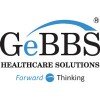
GeBBS Healthcare Solutions

UnitedHealth
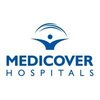
Sahrudaya Healthcare (Medicover Hospitals)
- Home >
- Interviews >
- Cloudnine Hospital Interview Questions



